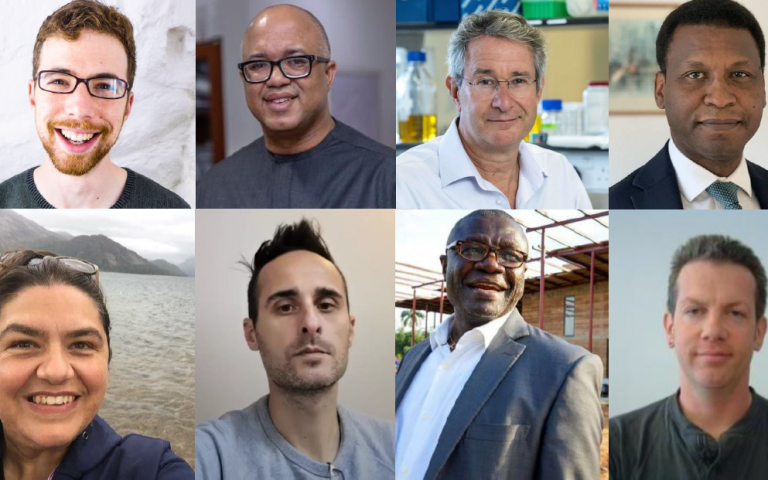Project helping prevent future pandemics wins global prize
25 June 2021
A UCL-led project aiming to predict and manage the risk of diseases transmitting from animals to humans has scooped a £1m prize as part of the inaugural Trinity Challenge competition.

The Sentinel Forecasting System, developed by UCL researchers in collaboration with partners in Nigeria, USA and the UK, will explore the emergence of new infectious diseases in West Africa, beginning with Lassa fever.
The system will combine data from ecology, social science, genomics and epidemiology to provide real-time disease risk for haemorrhagic fevers, such as Lassa and Ebola.
The Trinity Challenge was launched in September 2020 by England’s former Chief Medical Officer, Dame Sally Davies, bringing about collaborations between the private, public, charitable and academic sectors to drive a step-change in using data and analytics for pandemic preparedness and recovery.
Eight winners have been selected by a prestigious international panel of expert judges, out of 340 applications from 61 countries.
Lassa is a virus usually passed to humans through exposure to food or household items contaminated by infected rats. It is endemic in West African countries including Benin, Ghana, Guinea, Liberia, Mali, Sierra Leone, Togo and Nigeria.
Around 80% of people who become infected with Lassa virus have no symptoms, and the overall case-fatality rate is 1%. 1 in 5 infections can result in severe disease affecting the liver, spleen and kidneys.
The UCL team will partner with the African Centre of Excellence for Genomics of Infectious Diseases in Nigeria, Nigeria Centre for Disease Control, Zoological Society of London, London School of Hygiene and Tropical Medicine, University of Cambridge and Microsoft to produce the system.
By integrating real-time data on viruses circulating in animals, land use and climate change, as well as past spill-over incidents, the system will enable public health authorities to forecast infectious disease risk and prevent spill-over of haemorrhagic fevers like Ebola and Lassa through targeted interventions.
Project lead Professor Kate Jones (UCL Division of Biosciences) said: “We are so excited about this prize - the award will allow us to help solve the problem of how we can predict and manage the risk of animal diseases jumping into humans, which as we have seen in the current pandemic have severe global economic and health consequences.
“Our project brings together an amazing interdisciplinary international team from Nigeria, UK and USA uniting data from ecology and social science with cutting-edge genomics and epidemiology, to co-develop a real-time disease forecasting system with public health agencies in West Africa impacting the lives of millions of people.”
While the Covid pandemic has focussed global attention on how human disturbance of natural ecosystems drives disease outbreaks, the team realised a more integrated approach is needed to understand disease risk – one that links knowledge of the ecology of the animal host and how many people are exposed through our use of the environment, with the vulnerability of human populations.
West Africa is a critical nexus of these issues and following one of the worst outbreaks of Lassa fever in 2018, Professor Jones began working with colleagues at the Nigeria Centre for Disease Control (NCDC) to use this interdisciplinary approach to understand outbreak risk.
By incorporating disease animal biology, climate variability and socioeconomics, they were able to develop a modelling system to successfully forecast Lassa cases two months ahead of current conditions, to inform action for the NCDC in Nigeria.
Dr David Redding (UCL Division of Biosciences and Zoological Society of London) said: “The Trinity Challenge represents a unique opportunity to build links with industry partners to turn our research findings into user-friendly web-based tools, to help public health workers fight infectious diseases throughout the world.”
The Trinity Challenge’s £1.3m Grand Prize was awarded to the Participatory One Health Disease Detection (PODD) project, which empowers farmers to identify and report zoonotic diseases that could potentially pass from animals to humans, triggering another pandemic.
The Sentinel system was one of two projects awarded second prizes of £1m in pledged funding.
Judges marked applications against criteria such as the potential to be transferred to different countries; helping vulnerable populations or regions with high burdens of disease; demonstrating outstanding innovation in data and analytics for the global good; and setting novel standards in data integrity, security and privacy.
In addition to financial support, winners will receive networking opportunities with partners from the private, academic and social sectors to maximise the impact of their solutions.
Dame Sally Davies, Chair and Founder of The Trinity Challenge said: “We have been looking for solutions from anyone, anywhere around the globe that can use data and analytics in a new and different way to identify, respond to and recover from disease outbreaks, with the potential to become an epidemic or a pandemic to help those in the global south and north.
"The response we have received has been overwhelming. It delivers on our members’ early vision, that a smarter, more cross-sectoral approach to data and analytics is key to building an effective, affordable and scalable response to the threat of infectious diseases.”
Video
The Sentinel team’s video pitch
Links
- Professor Kate Jones’ academic profile
- Dr Dave Redding's academic profile
- Professor Ibrahim Abubakar's academic profile
- UCL Division of Biosciences
- UCL Faculty of Life Sciences
- Trinity Challenge
Image
UCL Professor Kate Jones (bottom left) and the Sentinel team.
Source
Media Contact
Sophie Vinter
Tel: +44 (0)20 3108 7787
Email: s.vinter [at] ucl.ac.uk
 Close
Close

